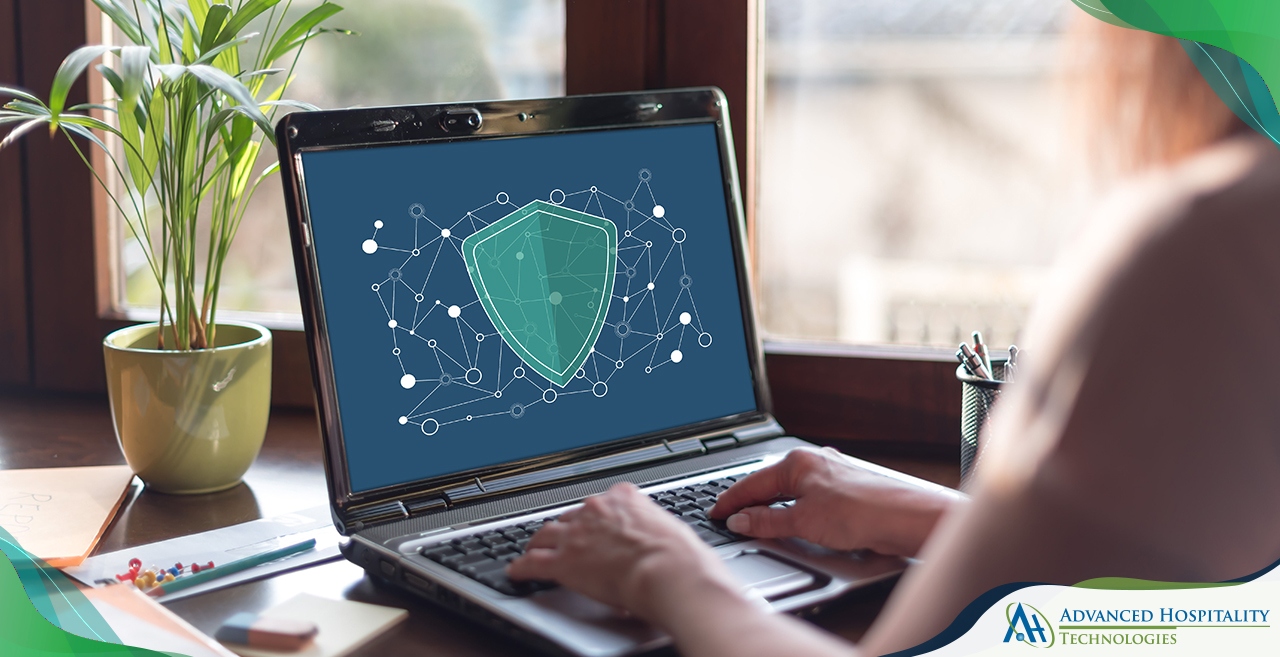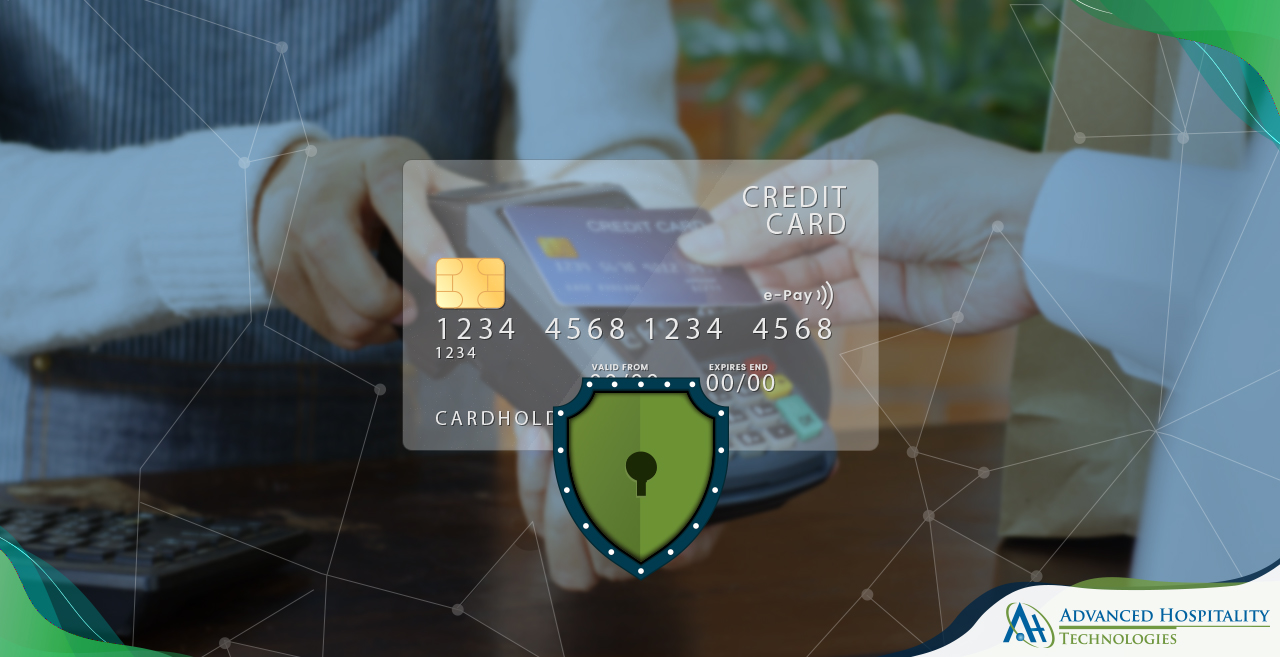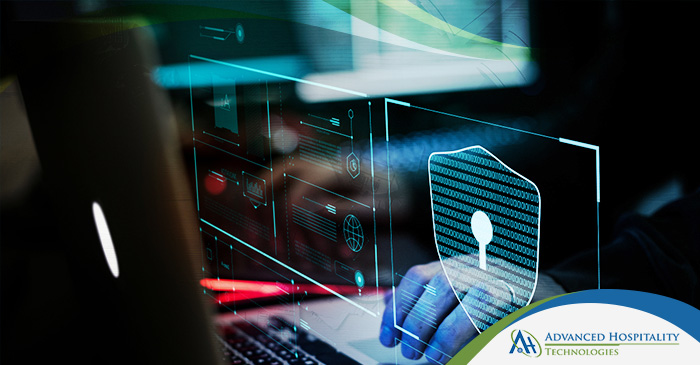In the ever-evolving digital landscape, hospitality organizations face the critical challenge of safeguarding their networks against cyber threats while ensuring a seamless guest experience. Maintaining a secure network is paramount, as it not only protects sensitive guest information but also preserves the operational integrity of the organization. This blog post outlines key security measures that hospitality businesses can implement to fortify their network infrastructure and mitigate cybersecurity risks.
1. Firewalls and Intrusion Detection/Prevention Systems (IDS/IPS):
Deploying firewalls at the network perimeter is one of the fundamental security measures for hospitality organizations. Firewalls act as gatekeepers, monitoring and controlling the flow of incoming and outgoing network traffic. This helps prevent unauthorized access and detect potential threats. Additionally, implementing Intrusion Detection and Prevention Systems (IDS/IPS) can further enhance network security. These systems actively monitor network traffic for suspicious activities, alerting security teams to potential security breaches and automatically taking action to block or mitigate them.
2. Network Segmentation:
Segmenting the network into distinct zones is a crucial strategy for enhancing network security in hospitality organizations. By segregating critical systems, such as guest services, point-of-sale (POS) systems, and administrative functions, into separate network segments, hospitality organizations can isolate potential threats and limit the spread of potential breaches. This can be achieved through the use of Virtual Local Area Networks (VLANs), which allow for the logical separation of network traffic and the implementation of granular access control policies to restrict unauthorized access between different network segments.
3. Strong Authentication and Access Control:
Implementing robust authentication mechanisms and access control measures is essential for securing a hospitality organization’s network. Strong authentication, such as WPA2-Enterprise for Wi-Fi access and multifactor authentication for administrative access, helps verify the identity of users and devices before granting them network privileges. Additionally, enforcing strict access control policies based on user roles and privileges ensures that only authorized individuals can access sensitive systems and data, reducing the risk of unauthorized access and potential security breaches.
4. Encryption:
Encrypting network traffic is a fundamental security practice for hospitality organizations. The use of protocols like WPA2 for wireless connectivity and SSL/TLS for data transmitted over the internet helps protect sensitive information from eavesdropping and unauthorized access. Furthermore, the implementation of Virtual Private Networks (VPNs) can provide secure remote access to internal resources and systems, allowing authorized personnel to connect to the network safely from any location.
5. Patch Management:
Keeping software and systems up-to-date is a crucial aspect of network security. Hospitality organizations must regularly update firmware, operating systems, and application software to address known vulnerabilities and mitigate security risks. Establishing a robust patch management process ensures the timely deployment of security updates and patches, reducing the organization’s attack surface and enhancing overall network resilience.
6. Guest Wi-Fi Security:
Providing secure guest Wi-Fi access is crucial for hospitality organizations. By isolating guest Wi-Fi networks from internal networks, hospitality organizations can prevent unauthorized access to sensitive information and systems. Additionally, implementing captive portal authentication mechanisms ensures that guests are properly authenticated before granting them internet access, while also allowing the organization to enforce terms of service and acceptable use policies.
7. Data Encryption and Privacy:
Protecting sensitive guest data is a top priority for hospitality organizations. Implementing robust data encryption measures, both for data at rest and in transit, is essential to safeguard against unauthorized access. Adhering to data protection regulations, such as PCI DSS, GDPR and CCPA, as well as industry standards, demonstrates the organization’s commitment to guest data privacy and security.
8. Security Awareness Training:
Educating and empowering employees in the security measures is a critical component of an effective cybersecurity strategy. Hospitality organizations should provide regular security awareness training to their staff, covering topics such as phishing awareness, password hygiene, and social engineering prevention. By fostering a security-conscious culture, employees can become the organization’s first line of defense against cyber threats.
9. Continuous Monitoring and Incident Response:
Implementing robust network monitoring tools and establishing a comprehensive incident response plan are crucial for detecting, responding to, and mitigating security incidents in a timely manner. Continuous monitoring of network activity allows security teams to identify and address potential threats before they can cause significant damage. Furthermore, a well-defined incident response plan outlines the steps to be taken in the event of a security breach, ensuring a coordinated and effective response.
10. Vendor Security Assessment:
Evaluating the security posture of third-party vendors and service providers is essential for hospitality organizations. Before integrating any external products or services into the network, it is crucial to assess the vendor’s adherence to industry-standard security practices and their compliance with relevant regulations. This due diligence process helps mitigate the risk of introducing vulnerabilities or security weaknesses through third-party integrations.
Conclusion:
By implementing these security measures, hospitality organizations can create a robust network infrastructure that protects guest data, maintains operational continuity, and mitigates cybersecurity risks. Regularly reviewing and updating security practices is essential to adapt to evolving threats and maintain a strong security posture. Prioritizing network security is not only a matter of compliance but a critical aspect of providing a safe and secure hospitality experience for guests.




